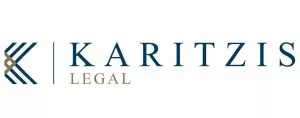Following the on-site visit carried out by the Committee of Experts on the Evaluation of Anti-Money Laundering Measures and the Financing of Terrorism ("MONEYVAL") to the Republic of Cyprus from the 13th of May 2019 to the 24th of May 2019 for the purpose of assessing the effectiveness of the Republic's Anti-Money Laundering and Counter Financing of Terrorism ("AML/CFT") system as well as its level of compliance with the 2012 Recommendations of the Financial Action Task Force ("FATF"), MONEYVAL issued its Fifth Round Mutual Evaluation Report (the "Report") on the 12th of February 2020.
MONEYVAL has issued the Report in its capacity as the permanent monitoring body of the Council of Europe which is entrusted with the task of assessing compliance with the principal international standards to counter money laundering and terrorist financing and the effectiveness of their implementation, as well as with the task of making recommendations to national authorities in respect of necessary improvements to their systems.
In general, the Report notes that even though there are some areas in need of improvement and further attention, Cyprus effectively formulates its national AML/CFT policy and strategy and implements adequate measures against money laundering and terrorist financing. That said, MONEYVAL positively assessed Cyprus' overall level of compliance and effectiveness based on the following key findings:
- Cyprus has good understanding of the money laundering risks that it faces to a large extent and a number of measures have been effectively deployed to mitigate some of the main risks. In some aspects, particularly where the Central Bank of Cyprus (CBC) is involved, the understanding is very good.
- Cyprus has good understanding of Terrorist Financing risks with a strong counter terrorism infrastructure in place.
- There is a good level of co-operation and coordination between the competent authorities both on policy issues through the Advisory Authority and at an operational level between the various competent authorities.
- The banking sector has become more effective in mitigating risks. This is largely due to the increasingly sound supervisory practices of the Central Bank of Cyprus.
- The Financial Intelligence Unit ("FIU") has the ability to support the operational needs of competent authorities through its analysis and dissemination functions.
- Cyprus has developed mechanisms which are capable of delivering constructive and timely assistance to other countries both on a formal and informal basis.
- The customs authorities are very conscious of risks associated with the jurisdiction's frontiers. The authorities apply effective measures by monitoring movements including potential smurfing, by referring matters to the FIU where there are ML/TF suspicions, and by compounding offences to confiscate the amounts when the context of the case allows for it.
- Significant efforts were made by the supervisors to establish a comprehensive ASP regulatory and supervisory framework, which have resulted in an increased level of compliance by the ASP sector and improved the quality of BO information maintained by them.
Regarding the areas in need of improvements and further attention the Report goes to provide a number of recommendations that Cyprus should implement for its system to be strengthened. Some of the key recommendations provided are the following:
- Cyprus should conduct a more comprehensive assessment of the
following areas:
- the vulnerability of the real estate sector;
- the Cyprus Investment Program, legal persons and arrangements; and
- a more in-depth TF assessment;
- The existing coordination framework in relation to PF should be strengthened.
- Cyprus should communicate the results of national risk assessments to real estate agents and the casino.
- The Police should continue developing its expertise to effectively handle complex analysis cases generated by the Financial Intelligence Unit ("FIU") and should be more proactive in seeking Mutual Legal Assistance ("MLA") in relation to ML cases involving proceeds of funds in Cyprus originating from criminal activity outside of Cyprus.
- The authorities should continue taking measures to improve the quality and quantity of both Money Laundering and Terrorist Financing suspicious transactions reports, especially in the ASP and real estate sectors.
- Cyprus should be more aggressive in proactively pursuing all types of ML and particularly regarding foreign predicate proceeds, instead of merely adopting a reactive approach to investigate ML parallel to domestic predicate criminality.
- The efforts already shown in exploring and harvesting all existing avenues of potential identification for ML, including disseminations from the FIU and incoming MLA, should continue and be enhanced further.
- Where financial investigations are to be carried out at local level, or by the separate central units such as the Drug Law Enforcement Service or the Operations Office, the authorities should ensure these units have sufficient resources and capacity for this.
- Cyprus should take steps to ensure that its legal and regulatory framework adequately addresses the ML/TF risks associated with transactions involving real estate, and that AML/CFT regulation of real estate brokers is effective. This could involve requiring the use of a real estate broker to conclude a transaction in high value or otherwise high-risk real estate, extending formal AML/CFT obligations to persons engaged in the business of real estate development, and/or extending formal AML/CFT obligations to the Department of Land and Surveys with respect to the operation of the Land Register. Additionally, Land Register information should be made available to all persons with a need to know that information, even without permission of the owner of the real property involved, to the extent consistent with data protection requirements.
- Cyprus should consider whether the casino can responsibly manage the ML/TF risk associated with its current configuration, and if not then whether the current configuration should be changed in ways that provide more certainty about AML/CFT effectiveness, such as to a membership model.
In conclusion, the Report provides a positive assessment for Cyprus considering the fact that Cyprus has achieved Compliant or Largely Compliant ratings in most of the 40 FATF Recommendations with none non-compliant rating and its AML/CFT measures have been assessed as substantially effective in three out of the eleven effectiveness pillars and moderately effective in the remaining eight.
The link to the relevant Report can be found here
The content of this article is intended to provide a general guide to the subject matter. Specialist advice should be sought about your specific circumstances.

